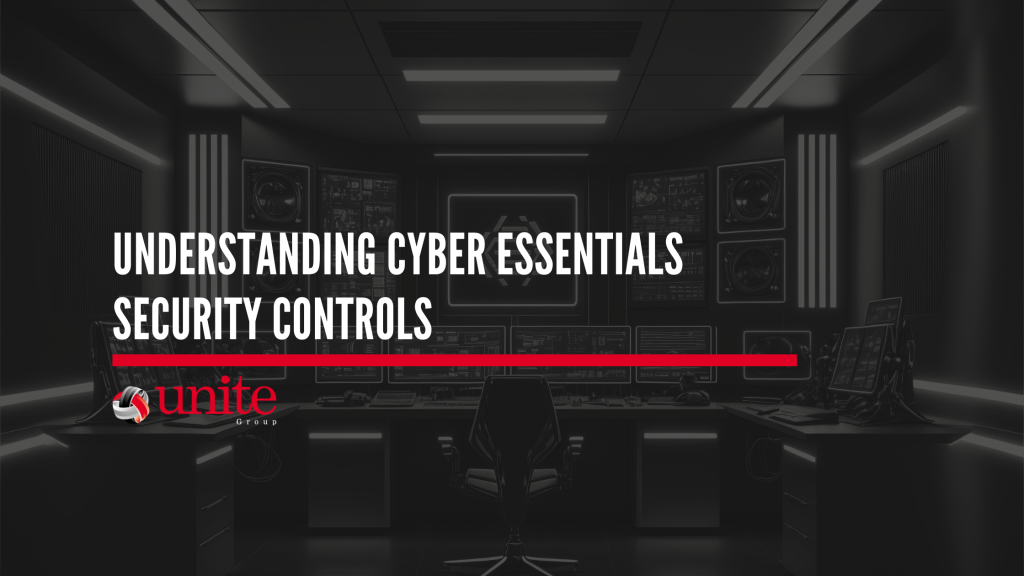
Cyber security is more critical than ever. With businesses increasingly relying on digital infrastructure, the need for robust security measures has never been greater. One effective way for organisations to protect themselves against common cyber threats is through the Cyber Essentials scheme. This UK government-backed initiative provides a clear set of guidelines designed to help businesses safeguard their data and systems. At the heart of this scheme are five essential security controls.
What is the Cyber Essentials Scheme?
The Cyber Essentials scheme is a certification program launched by the UK government to help organisations protect themselves from a range of the most common cyber attacks. It provides a set of basic but effective security measures that, when implemented, can significantly reduce the risk of cyber incidents. The scheme is divided into two levels of certification: Cyber Essentials and Cyber Essentials Plus. Both levels require adherence to five key security controls, but Cyber Essentials Plus involves a more rigorous assessment process.
The Five Security Controls of Cyber Essentials
Firewalls and Internet Gateways
Firewalls act as a barrier between your internal network and external threats, preventing unauthorised access. They are crucial for controlling incoming and outgoing network traffic based on predetermined security rules. Internet gateways perform a similar function by filtering traffic and protecting against malicious content. By properly configuring firewalls and internet gateways, businesses can block many potential attacks before they penetrate the network.
Secure Configuration
Secure configuration involves setting up systems and devices in a way that minimises vulnerabilities. This includes changing default passwords, disabling unnecessary services, and ensuring that software and hardware configurations adhere to best practices. Proper configuration reduces the risk of security breaches by eliminating common entry points that attackers might exploit.
Access Control
Access control is about ensuring that only authorised individuals can access sensitive data and systems. This involves implementing strong password policies, using multi-factor authentication, and regularly reviewing user permissions. By limiting access to only those who need it, businesses can significantly reduce the risk of internal and external threats.
Malware Protection
Malware, or malicious software, includes viruses, ransomware, and spyware that can disrupt operations, steal data, or cause significant damage to systems. Effective malware protection involves using reputable anti-malware solutions, keeping them updated, and regularly scanning systems for threats. Additionally, educating employees on recognising phishing attempts and avoiding suspicious downloads is crucial in preventing malware infections.
Patch Management
Patch management is the process of regularly updating software and systems to fix vulnerabilities. Cyber attackers often exploit known vulnerabilities in software that hasn’t been updated. By keeping all systems up to date with the latest patches, businesses can protect themselves against these exploitations. This includes operating systems, applications, and firmware updates.
Why Are These Controls Important?
The Cyber Essentials security controls are designed to address the most common cyber threats that organisations face. By implementing these measures, businesses can protect themselves against a wide range of attacks, including phishing, malware, and network intrusions. Here’s why each control is crucial:
Firewalls and Internet Gateways:
These act as the first line of defence, blocking unauthorised access and malicious traffic.
Secure Configuration:
Proper setup reduces vulnerabilities that could be exploited by attackers.
Access Control:
Limits the risk of insider threats and ensures only authorised users can access sensitive information.
Malware Protection:
Prevents malicious software from causing harm to systems and data.
Patch Management:
Ensures that known vulnerabilities are fixed promptly, reducing the window of opportunity for attackers.
The Role of The Unite Group
At The Unite Group, we understand the importance of cyber security and are committed to helping businesses achieve Cyber Essentials certification. Our team of experts can guide you through the certification process, ensuring that all security controls are correctly implemented and maintained.
Comprehensive Assessment and Guidance
Our certified assessors will conduct a thorough evaluation of your current cyber security practices, identify any vulnerabilities, and provide detailed recommendations for improvement. This assessment is the first step towards achieving Cyber Essentials certification.
Documentation and Preparation
We assist in preparing all necessary documentation and evidence required for the certification process, ensuring that your organisation meets all Cyber Essentials standards.
Ongoing Support
Cyber security is an ongoing process. We offer continuous support to help maintain your cyber security posture, conduct regular assessments, provide updates on emerging threats, and offer training to ensure your team is equipped to handle cyber security challenges.
Conclusion
Achieving Cyber Essentials certification is a crucial step towards robust cyber security compliance. It not only protects your organisation from common cyber threats but also enhances your reputation and ensures regulatory compliance. The Unite Group is here to support you every step of the way. Contact us today to start your journey towards achieving Cyber Essentials certification and securing your business against cyber threats. By implementing these measures, you can protect your business from potential cyber threats and ensure a secure digital environment for your operations.
